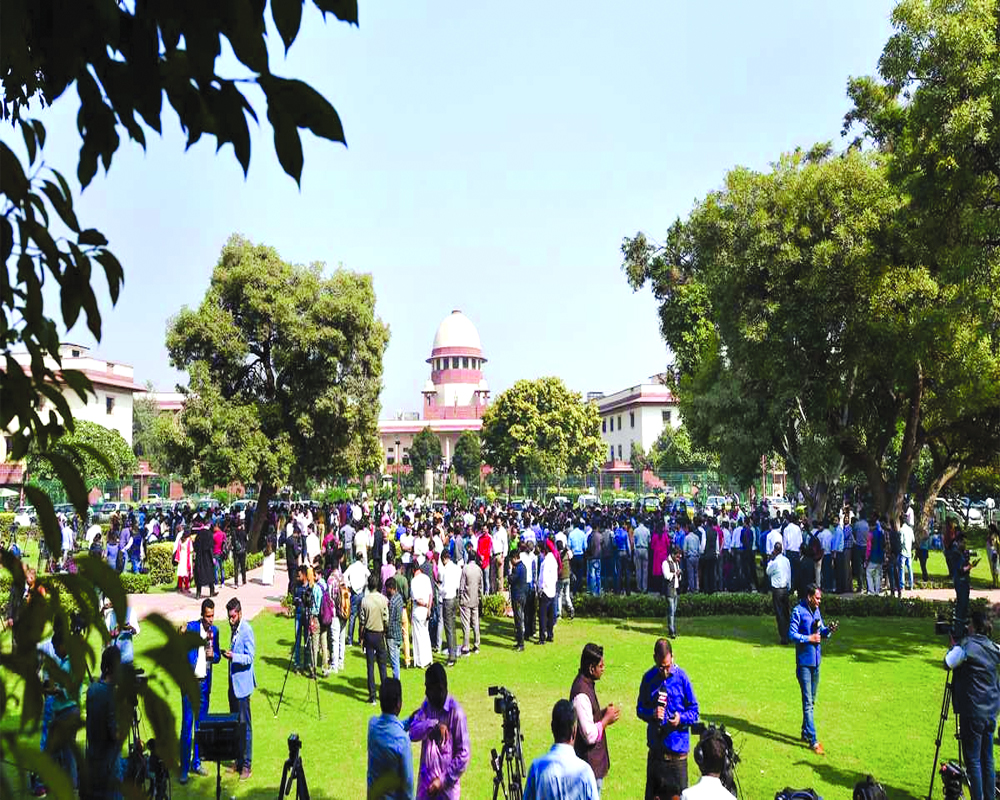Mobile courts are a viable solution to address the rising pendency of cases
As the dust settles on the COVID-induced havoc, every sector will take its own sweet time to regain normalcy. The Indian judicial system that is overburdened with a heap of pending cases will be added with an additional lakh number of petitions from the time courts have stopped in-person hearings since the breakout of the pandemic.
While several courts, including the Supreme Court and High Courts in most states, have switched to online hearing, a major chunk of lawyers in district and subordinate courts still struggle to adjust in the system and continue to await the conventional hearing system to be reinstated.
This is a great opportunity where the concept of Mobile courts can be instilled to cope up with the pending petitions especially in the district and subordinate courts. The concept of Mobile Court was launched in Haryana's Mewat district in 2007 by former Chief Justice K G Balakrishnan and the model was replicated in a few other states later on.
However, the initiative was not followed up subsequently. There was lots of trial and testing and it was said the exercise was expensive and cost resources. However, in the pandemic and post-pandemic stages, the concept needs to be revived. According to a media report, there has been a spike of 19 per cent in pendency of cases across India. The total cases pending as on March 25, 2020 was 3.68 crore which has increased to 4.4 crore as on April 15, 2021. That is an addition of over 70 lakh cases.
The government has to understand that mobile courts that were a boon during the pandemic and successfully implemented in countries like Somalia, Sierra Leone, Democratic Republic of Congo and Bangladesh (according to United Nation Development Programme), can also help reduce the burden of courts and expenses in normal times too.
Mobile Courts can be seen in alignment with Lok Adalats (People's Courts) as an alternate judicial system where the Alternate Dispute Redressal (ADR) mechanism has been successfully executed in various countries. In India roughly 91 per cent of the cases instituted in the Courts go to trial and only 9 percent of cases are settled without judicial agitation, whereas in the USA, more than 90 per cent of cases involving legal disputes are settled before they go for trial.
There stands a very simple question that if the institution of Lok Adalat has been acknowledged as an effective ADR agency and gained wide acceptability, then why cannot the mobile courts achieve the same. Such forums help settle disputes through negotiation, counseling, conciliation, settlement and compromise without going for court verdicts.
Online hearings are dependent on broadband facilities, like in rural areas, and the uneven digital awareness in the lower courts. So, this system will take time percolating down to the subordinate courts. Mobile Courts can fill the gap and take judiciary closer to the people. But the government also needs to back this system of judicial redressal, invest time and resources and allow it to flourish.
The system will prove to be a boon in the long run by aiding the judiciary in clearing cases faster and also help people settle disputes faster through the judicial system.
(The author is a law student at the University of Delhi. The views expressed are personal.)


























